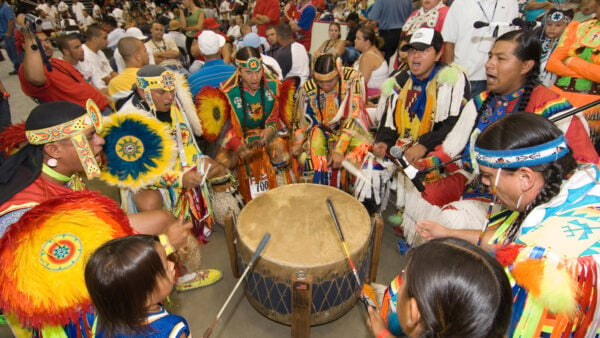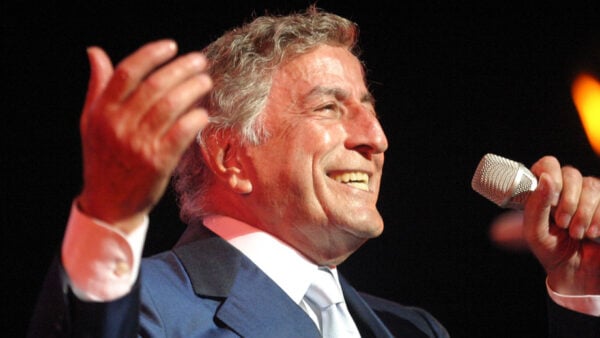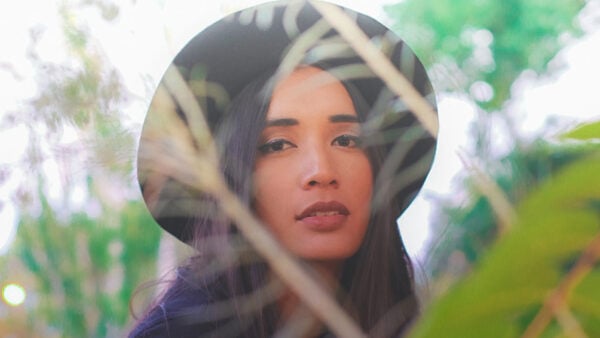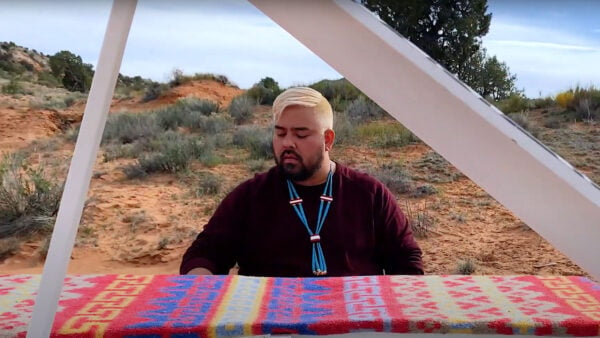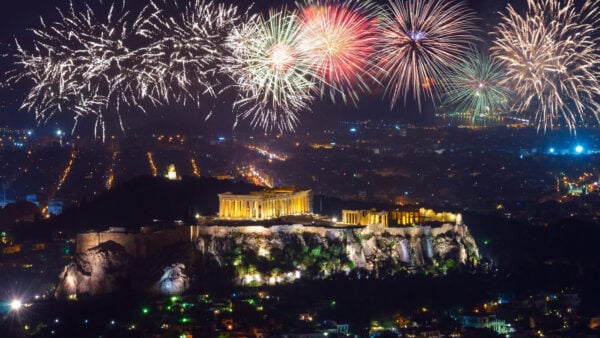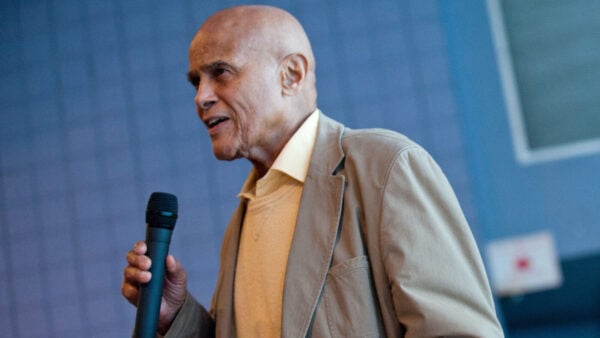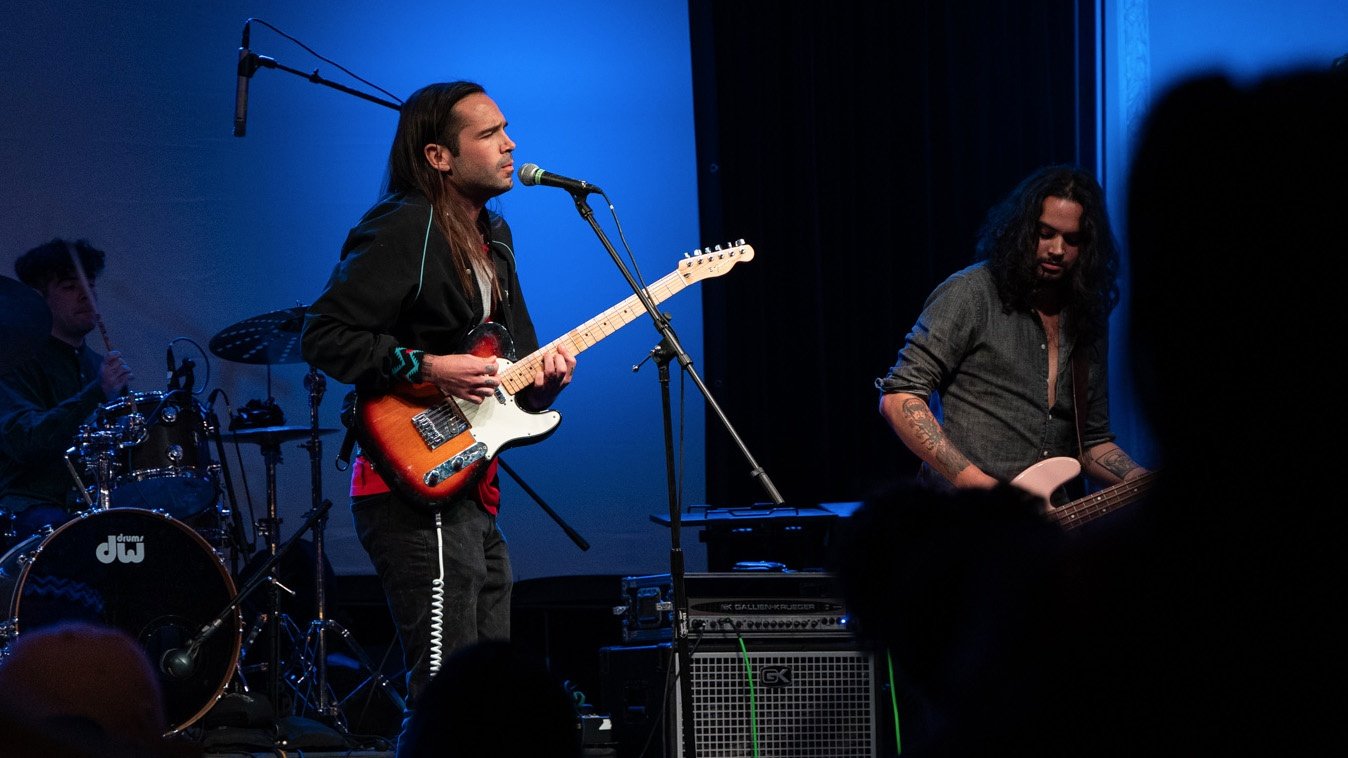
OPLIAM performs at the 2022 Indigenous People’s Day Festival (Photo: Beto De Freitas)
The Indigenous People’s Day Chicago Festival is an annual celebration of Indigenous artists near and far. Now in its fifth year, the festival will soon host artists from all over the world, a number of vendors, and even a fashion show. But what is now one of Chicago’s biggest celebrations of Indigenous arts and culture has its roots in a classroom.
A few years ago, musician Liam McDonald (OPLIAM) moved to Chicago in order to round out his degree with courses at Columbia College. Yet as a Mohawk descendant from the Akwesasne tribe, he was surprised by the lack of Indigenous visibility in a major metropolitan area.
“Coming from Minnesota,” McDonald reflects, “where they already changed Columbus Day to Indigenous People’s Day, I decided to focus my speech in college about that holiday, and why Chicago is kind of lagging behind in Indigenous visibility.”
The presentation struck a chord with the class. “Everyone got super inspired. They started swapping stories about places they grew up in, and the lack of Indigenous stories that were shared… It was like a lightbulb went off.” It was at that moment that an idea for a festival was born.
After graduating, McDonald went to work in concert production, while continuing to develop and pitch his idea for a celebration of Indigenous arts to venues all over Chicago. He was met with rejection. After about a year of pitching, McDonald gained some traction when his idea got selected for a micro-grant program.
The pitch failed to get past the semifinal round, but later that evening, McDonald was approached by folks who saw his presentation and wanted to get involved. He says that night set the tone for the success of the event. “People said it didn’t matter whether we got the grant – we’re going to do this. Chicago needed this.”
With a minimal budget and a small team of volunteers, McDonald was a little apprehensive going into the first year of the Indigenous People’s Day Festival. Yet, despite his anxieties, the event saw a huge turnout from all over the Chicago area. He notes that the festival’s first year “…showed me that the community needed this event. Once it was built, even in its kind of rickety form, people flooded in.”
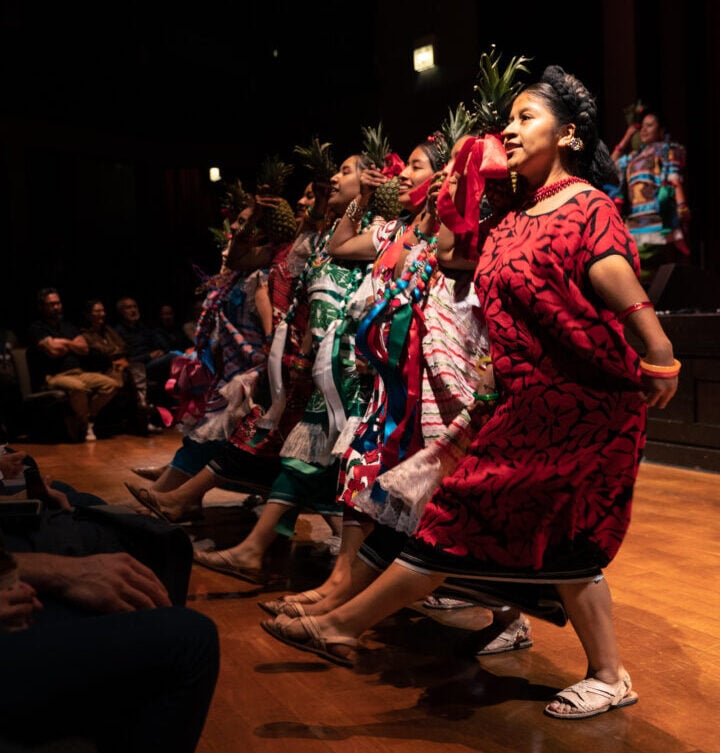
Dancers from the 2022 Indigenous People’s Day Festival. (Photo: Beto De Freitas)
Five years later, the festival remains one of the few events of its kind in the Chicago area. And as such, it attracts attendees from all over the world and artists from a variety of Indigenous backgrounds.
This year’s milestone celebrations spotlight music and fashion in Indigenous communities. The 2023 festival will host include some of the top Indigenous musicians from all over the Americas, including Digging Roots (Anishinaabe & Mohawk), Keith Secola (Anishinaabe), Novalima (Afro-Peruvian), Raye Zaragoza (Akimel O’otham), One Way Sky (Gila River Indian Community/ Tohono O’odham Nation), Earth Surface People (Diné), Tres Hermanos Bautista (Mexico) and McDonald himself, performing rock music under his stage name OPLIAM.
Apart from showing off diversity within Indigenous communities, McDonald also hopes this year’s festival will drive home another important message: visibility. “We [Indigenous People] are constantly dealing with invisibility, constantly dealing with not being visible.”
“Most [Indigenous] people in the Illinois and Indiana areas were removed, so that makes it a little difficult.” One of the many consequences of the Indian Removal Act of 1830 is a lack of reservations and tribal governments in Illinois, despite being the traditional home of the nations making up the Council of Three Fires.
What’s more, McDonald notes, Chicago is filled with many contested symbols that invoke an anti-Indigenous history: for example, the Christopher Columbus statue in Grant Park, the Bowman and Spearman statues, and even Chicago’s city seal. It’s “holding on to things that promote the narrative that there are no more Indigenous people in the Chicago area. But the fact is, we’re still here, and we’ve always been here.” As of 2018, Chicago is home to the third-largest urban Indigenous population in the United States.

Novalima, an AfroPeruvian band that is one of this year’s headliners at Indigenous People’s Day Festival. (Photo: Francisco Medina)
McDonald hopes that the Indigenous People’s Festival Chicago serves as a reminder that Indigenous cultures are still alive and thriving, and encourages folks to participate in healing old and ongoing wounds. “People are done with that old Columbus Day Parade. People want the new. People want Indigenous People’s Day. [The history of Indigenous people in America] is not just the narrative of war. Ours is a side that flips the narrative; how our culture survived, how our artists thrived and succeeded in the world. Yes, we’ve had a really dark history, but we are also blessed with creative medicine. We have creativity and the arts in our soul.” It’s part of the reason McDonald is so passionate about using the arts to spread awareness about Indigenous history; in addition to the Indigenous People’s Day Festival, and his music, McDonald recently authored a young adult book called Indigenous America.
Audiences of all backgrounds are encouraged to come out and experience this year’s festival for themselves: to learn, support the artists, and take their experience at the festival back to their own communities. Change through positive experiences is what McDonald firmly believes will shift mainstream perception of Indigenous People, and the Indigenous People’s Day holiday.
“Part of our biggest mission is using our creative medicines to combat negativity, and racism, and bad forces.” For that, he needs the participation of the general Chicago community. “Being a part of that medicine [of the arts], and taking it back, is part of the change. Come in, see what we’re doing, see the beauty of our culture. Go out and change things.”
The 5th Annual Indigenous People’s Day Festival will be taking place this year on October 8 and October 9 at Chop Shop [2033 W North Ave., Chicago]. Tickets are free, but there is a suggested donation of $10 per ticket, and online reservations are strongly encouraged. For more information about the festival, visit skypeopleentertainment.com/ipdchicago. For more information about Liam McDonald, his music, his activism, or his new book, Indigenous America, visit opliammusic.com.

